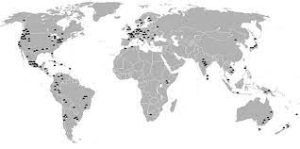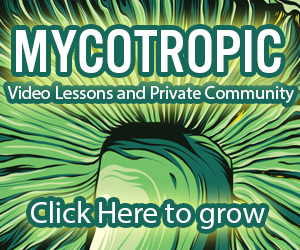
Do traditional African tribes maintain a connection to the ritual use of psychoactive mushrooms and plants?
If so, how come there are virtually no references to these practices in academic literature and anthropological reports?
The below account of a researcher coming across a medicine man using two different types of psychoactive fungi in the traditional healing arts of the Ivory Coast is one of the only references available on the internet, but the presence of this tradition and the climate of the African continent suggests that other lineages of psychotropic fungi use exist.
“Souleymane comes to an agreement with Soubrillard on passing him on “unedited” news about some African medicinal plants, against payment of several thousands CFA francs each. The meeting and the agreement with the healer appear surprisingly “easy” as Soubrillard himself remarks. He went at the healer several times, in an indefinite place of Ivory Coast, and the healer revealed, little by little, different vegetal medicines obtained from plants largely having psychoactive effects.
One of these vegetables is tamu, the “mushroom of knowledge”, growing in lagoonal areas, in compact groups, on rises in the ground, identified by Soubrillard as a species of Conocybe (Bolbitiaceae fam.).
Souleymane takes the author to the place where these mushrooms grow, pick a sufficient number of these and then both men return to the village (presumably, Souleymane native village). A short time before going to bed, the healer offers Soubrillard a forkful of these cooked mushrooms (however, he affirms that they can be eaten either raw or cooked) and then – an uncommon fact in the traditional use of hallucinogenic mushrooms – he leaves him alone.
The author eats the portion of mushrooms and shortly falls asleep on the bed. A little later he wakes up seized by visual and acoustic hallucinations. His experience could be considered as a “bad trip” because of the starting of phobias and fears for the encounter/conflict with “his double”, fears which – according to his statements – obsessed him for more than a year and left him with a deep trauma: “This confrontation with my double was a confrontation with myself. One day it will be decisive” (p. 47). Nevertheless, the author eats tamu a second time, in the same situation and the experience appears more constructive.” (Source: https://www.fondazionemcr.it/context.jsp?ID_LINK=111250&area=279)
On this week’s Mycopreneur Podcast episode, renowned cultural researcher and mushroom steward Moudou Baqui joins us to share knowledge from his six trips to the African continent to do field research on traditional societies and their connection to fungi and entheogenic rituals.
“When colonialism spreads, the sacred traditions of a people are the first thing to go. So the tribes have learned to be very hush hush about these practices.” says Moudou.




